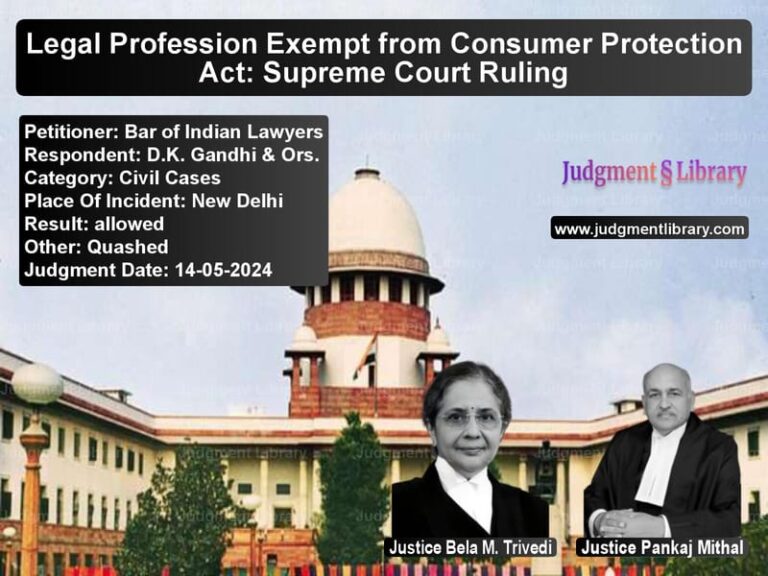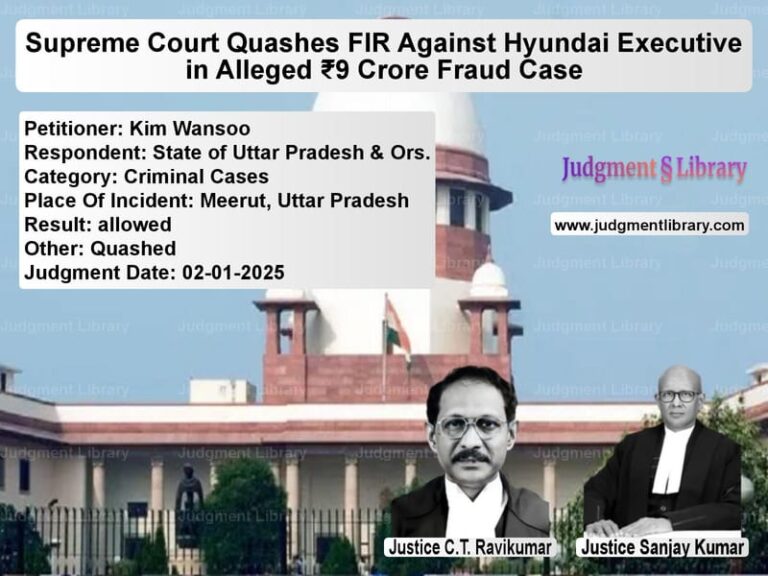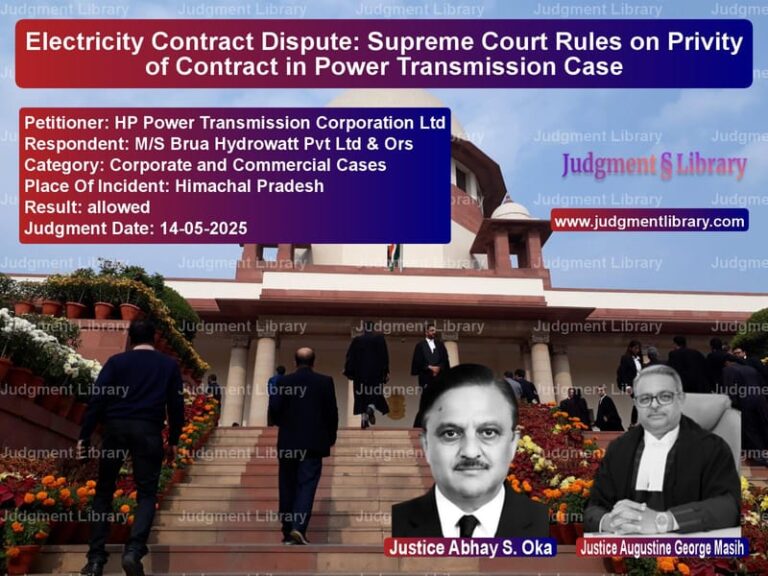SARFAESI Act and Arbitration: Supreme Court Rules Against Simultaneous Proceedings
The case of M.D. Frozen Foods Exports Pvt. Ltd. & Ors. vs. Hero Fincorp Ltd. is a crucial Supreme Court ruling that addresses the legal interplay between arbitration proceedings and the enforcement of security interests under the SARFAESI Act. The case raised fundamental questions about whether a lender can simultaneously initiate arbitration proceedings and invoke the SARFAESI Act to recover outstanding dues.
Background of the Case
M.D. Frozen Foods Exports Pvt. Ltd., the appellant, had borrowed a substantial loan from Hero Fincorp Ltd. by mortgaging seven immovable properties in 2015. However, the financial discipline required for loan repayment was not adhered to, and the account was classified as a Non-Performing Asset (NPA) on July 6, 2016.
The agreement between the parties contained an arbitration clause. Accordingly, the lender, Hero Fincorp Ltd., initiated arbitration proceedings on November 16, 2016. Simultaneously, following a notification issued on August 5, 2016, bringing certain Non-Banking Financial Companies (NBFCs) under the ambit of the SARFAESI Act, Hero Fincorp also invoked its rights under the Act.
Legal Issues Considered
- Whether arbitration proceedings could continue alongside SARFAESI Act enforcement.
- Whether the lender could invoke SARFAESI provisions for debts arising from loan agreements executed before its inclusion under the Act.
- Whether SARFAESI remedies applied retroactively to pre-existing loan agreements.
Arguments of the Appellants
- The borrowers argued that Section 13(2) of the SARFAESI Act imposed new substantive obligations and could not be applied retrospectively.
- The initiation of arbitration proceedings before invoking SARFAESI amounted to an election of remedies, barring the lender from subsequently enforcing security under the SARFAESI Act.
- The borrowers contended that their existing loan agreement should not be subjected to SARFAESI provisions retrospectively.
Arguments of the Respondents
- The lender argued that the SARFAESI Act merely provided an alternative enforcement mechanism without creating new obligations.
- NBFCs, after being notified under the SARFAESI Act, could utilize its provisions even for existing NPAs.
- Arbitration and SARFAESI proceedings addressed different aspects of debt recovery and were not mutually exclusive.
Key Observations by the Supreme Court
The Supreme Court thoroughly examined the legislative framework governing arbitration and the SARFAESI Act. The Court made the following key observations:
- The SARFAESI Act aimed to provide an efficient mechanism for financial institutions to recover secured debts without prolonged litigation.
- The Act did not create a new liability but merely provided a new enforcement mechanism.
- There was no express prohibition against simultaneous proceedings under arbitration and SARFAESI.
- The SARFAESI Act could be applied to pre-existing debts, as it was a procedural law facilitating debt recovery.
Important Extract from the Judgment:
“The SARFAESI Act is an enforcement mechanism aimed at expeditious recovery of debts secured by financial institutions. It does not create a new liability but provides an additional remedy. The availability of arbitration does not preclude a secured creditor from exercising its rights under the SARFAESI Act.”
Final Judgment
The Supreme Court ruled against the appellants and upheld the lender’s right to invoke the SARFAESI Act even while pursuing arbitration. The key directives issued were:
- The lender was entitled to enforce its security interest under the SARFAESI Act despite having initiated arbitration.
- The appeal was dismissed with costs of Rs. 20,000 imposed on the borrowers.
- The ruling affirmed that the SARFAESI Act applied to pre-existing loan agreements when financial institutions were subsequently brought under its ambit.
Implications of the Judgment
This ruling has significant implications for debt recovery and financial regulations in India:
- It clarifies that secured creditors can invoke SARFAESI despite pre-existing arbitration clauses.
- It establishes that the SARFAESI Act provides an additional remedy rather than a mutually exclusive alternative.
- It reinforces that the Act applies to pre-existing loan agreements for notified NBFCs.
- It strengthens the position of financial institutions in securing their dues efficiently.
Conclusion
The Supreme Court’s ruling in this case is a landmark judgment clarifying the applicability of the SARFAESI Act in cases involving arbitration clauses. It reinforces the Act’s role as an efficient recovery mechanism and affirms that financial institutions can pursue multiple remedies concurrently. The decision ensures that defaulting borrowers cannot use procedural technicalities to evade repayment obligations.
Don’t miss out on the full details! Download the complete judgment in PDF format below and gain valuable insights instantly!
Download Judgment: M.D. Frozen Foods Ex vs Hero Fincorp Ltd. Supreme Court of India Judgment Dated 21-09-2017.pdf
Direct Downlaod Judgment: Direct downlaod this Judgment
See all petitions in Bankruptcy and Insolvency
See all petitions in Corporate Compliance
See all petitions in unfair trade practices
See all petitions in Judgment by Rohinton Fali Nariman
See all petitions in Judgment by Sanjay Kishan Kaul
See all petitions in dismissed
See all petitions in Declared Infructuous
See all petitions in supreme court of India judgments September 2017
See all petitions in 2017 judgments
See all posts in Corporate and Commercial Cases Category
See all allowed petitions in Corporate and Commercial Cases Category
See all Dismissed petitions in Corporate and Commercial Cases Category
See all partially allowed petitions in Corporate and Commercial Cases Category







